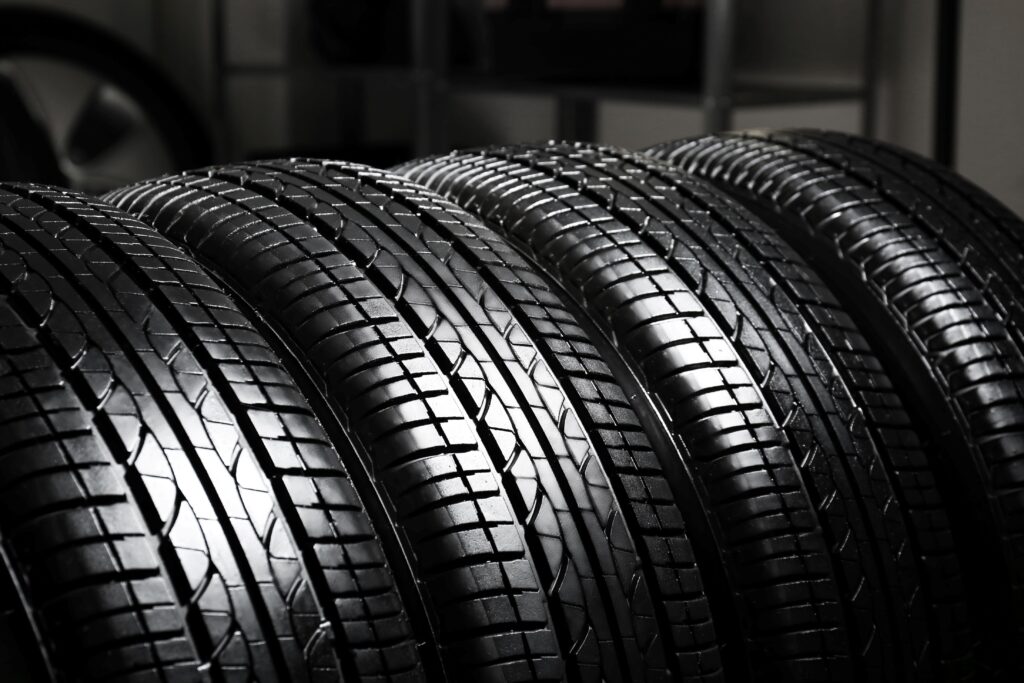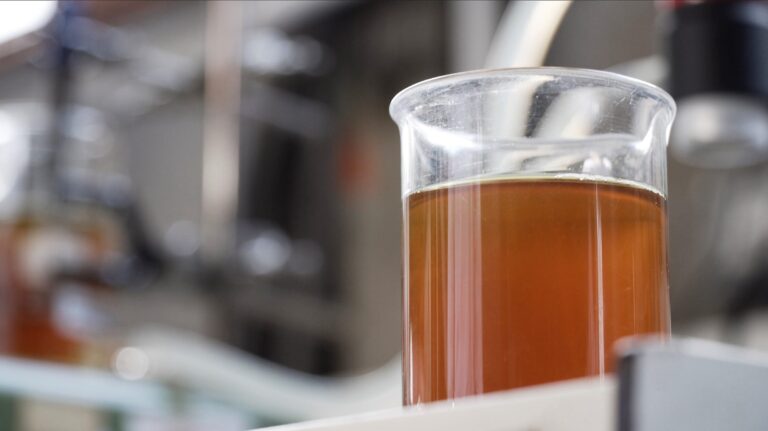In 2006, Michelin’s laboratories embarked on a journey to develop a non-toxic, high-performance resin solution. This ambition gave birth to ResiCare, a dedicated subsidiary to make this innovation accessible to the entire industry, including Michelin’s competitors. The results speak for themselves: over 100 million tires have been manufactured using ResiCare resin, marking a major milestone in sustainable tire production.
A plug-and-play innovation, ResiCare resin replaces the resorcinol-formaldehyde (RF) component in the traditional RFL (resorcinol formaldehyde latex) solution, enabling manufacturers to maintain adhesion and peel strength, without modifying their existing dipping lines. This approach ensures a smooth transition to safer chemistry, with minimal disruption to production. ResiCare’s solution, free from substances meeting SVHC (Substances of Very High Concern) criteria, offers a safer alternative to formaldehyde, classified as a carcinogen 1B since 2016, and resorcinol, recognized as a Category 1 endocrine disruptor by EU and REACH regulations.

ResiCare is already fully deployed at industrial scale across Europe and Asia and has been validated by five major converters – enabling an international network, with eight industrial production sites. It has been tested and deployed globally, with strong support from Michelin’s teams to overcome industrialization and scale-up challenges. Today, ResiCare is not just a viable alternative, it’s the fastest-deployed RF-free system on the market. While some may be tempted to compare costs per kilogram, this misses the broader value proposition – ResiCare is a premium solution but not just in price, also in what it delivers.
Traditional RF resins come with hidden costs: regulatory compliance, worker safety measures and environmental liabilities. European directives like 2004/37 are already pushing manufacturers to reduce formaldehyde exposure. ResiCare anticipates this shift, offering a futureproof alternative that reduces risk and simplifies operations.
High performance
Michelin’s Resi4TEX technology is projected to transition to a bio-based model by 2027. This resin belongs to the Araminolic chemistry family, which aims to replace and substitute phenolic resins on the market with resins that are predominantly 100% bio-based and non-toxic. This innovative chemistry not only matches but often exceeds the performance characteristics required for tire reinforcement. Despite being a novolak phenolic resin, this new generation of resin behaves like its predecessors in terms of performance, with added benefits.
In the adhesive, composed of resin and latex, Resi4TEX provides temperature and fatigue resistance by forming a three-dimensional network, while the latex component contributes flexibility and reactivity with rubbers. This combination enables the bonding of textile reinforcements to various types of rubber and textiles.
The adhesion performance achieved with Resi4TEX is comparable to traditional RF resins across many textile reinforcements such as polyester (PET), Nylon 6, Nylon 66, aramid and rayon.
Peel strength and peel patterns (cohesive failure within the rubber) delivered by Resi4TEX are on par with or even exceed market benchmarks.
In addition, tensile strength values (pull-test) are equivalent to those of RF resins. This test measures the physical forces resulting from the interpenetration and interlocking of the resin with fiber.
Resi4TEX also demonstrates superior performance in fatigue tests, which assess the degradation of rubber-fabric adhesion over numerous cycles around a pulley.
The future
The tire industry is clearly moving toward RF-free solutions, with many leading manufacturers developing their own alternatives. ResiCare stands out by offering a proven, robust solution already in industrial production by Michelin.
This milestone of 100 million tires manufactured using ResiCare resin is not just symbolic, it represents a significant environmental achievement. By avoiding the use of approximately 30 tons of formaldehyde, Michelin ResiCare is paving the way for a safer, more sustainable future in tire manufacturing.



